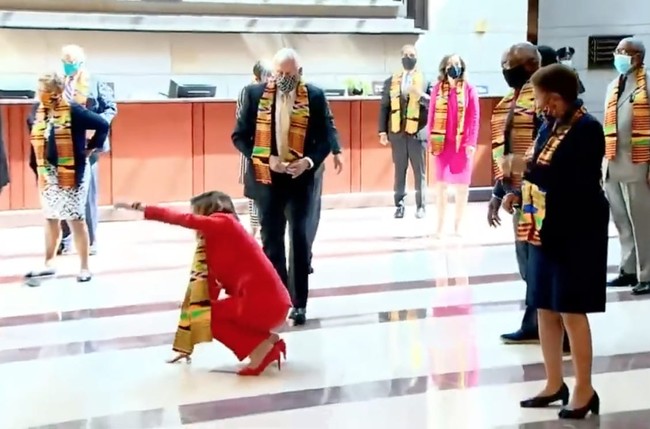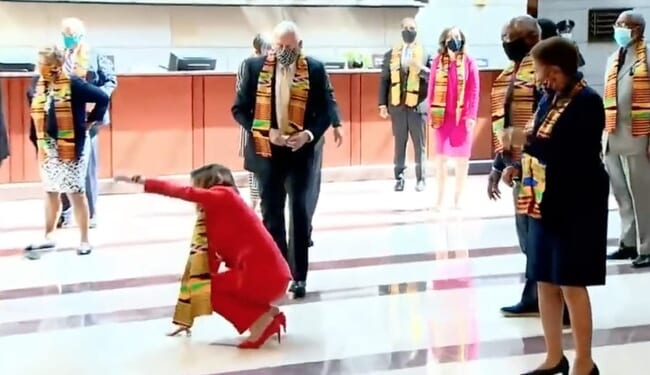
The Year She Arrived
I was one year out of high school, the same year Nancy Pelosi was elected to the U.S. House of Representatives in a special election in 1987. She joined the national stage during President Ronald Reagan’s second term, when America looked and felt different: The Cosby Show was the top-rated TV show, and “Walk Like an Egyptian” was the number one pop song.
Optimism filled the era, defining the country, while politics hadn’t yet become a 24-hour performance theater. Family sitcoms dominated the airwaves, and people still hoped they could trust their government.
A very different script accompanied Pelosi in Washington, signaling a different environment for decades to come.
From Ascent to Entrenchment
Pelosi became one of the most powerful figures in American politics, and during her nearly forty years in Washington, she made history as the first woman to hold the speaker’s gavel and reclaimed that post twice, a testament to her skill in consolidating power.
As the idiom states, power corrupts, and critics argue that in Pelosi’s case, it’s also calcified. She marked her speakership with rigid party discipline, backroom dealmaking, and keeping authority centered inside Washington.
However, the longer she held her power, the less representative that power seemed to be.
While her defenders cite her effectiveness in passing major legislation, her opponents see something darker: the building of a political empire that preserves the ruling class rather than serving the American people.
As my PJ Media colleague Matt Margolis recently wrote, Pelosi’s legacy isn’t simply about longevity—it’s about what she left in her wake: division, mistrust, and a government far more powerful than the one she inherited.
Now we’ve heard rumors like this before, but this time things feel different.
In recent years, Pelosi has experienced episodes in public that have raised questions about her physical and mental fitness—or at the very least, her sobriety—which have only added fuel to the growing speculation that the Pelosi era may finally be nearing its end.
The generational rift has been widening in San Francisco’s Democratic enclave for years, but it’s now cracking open. State Senator Scott Wiener, 55, shattered his own promise to wait for Pelosi’s decision and officially launched his campaign for her seat.
See Related: Nancy Pelosi’s Legacy Is a Monument to Washington Arrogance
A Record That Raises Questions
Calling Nancy Pelosi “anti-American” isn’t meant as a personal insult; it’s a political diagnosis. Since its founding, the idea of America has been rooted in limited government, individual liberty, and local accountability.
Those principles weren’t simply ignored under Pelosi’s leadership; they were openly attacked.
Pelosi was the prime mover of massive expansions of federal power through the Affordable Care Act, the Dodd-Frank reforms, and climate initiatives that strangled small businesses while enriching and enhancing bureaucracies.
The expression, “Children should be seen and not heard,” became law, with Pelosi treating dissent as defiance, not debate, and she presided over a House that increasingly viewed half the country as enemies of democracy simply for disagreeing.
Putting country before party partially defines patriotism; then there’s Nancy Pelosi. She elevated ideology above unity repeatedly and power above principle.
The Meaning of Her Possible Retirement
Reports like Matt’s have suggested that Pelosi may soon retire, but this time it’s stirring unease within the Democrats. She wields vast influence, but her era of dominance may finally be coming to an end.
Democrats will face a moment of reckoning if she steps down; will they return to the Kennedy-style vision of a party rooted in aspiration and patriotism, or double down on the cynical, top-down machine Pelosi helped perfect?
Pelosi’s departure could mark the end of a decades-long shadow war with Republicans against a speaker who defined opposition as treason.
For the rest of us, it may be a chance for our country to restore some measure of humility to a government long since drunk on its own authority.
Final Thoughts
The Cold War was nearing its end when Nancy Pelosi took office, and America believed its best days were ahead. Within forty years, that confidence has been replaced by polarization, mistrust, and fatigue.
Pelosi’s possible retirement is a symbolic change, not just personnel, representing the sunset of an era when the elites living in Washington could still convince the public that power and wisdom are the same thing.
It’s a long shot, I know, but the next generation will hopefully decide if it’s the long-overdue start of something better, or merely the end of a chapter of the same book.
Where Truth Still Has a Voice
If you value sharp, unapologetic analysis that cuts through the spin, join PJ Media VIP today. You’ll get full access to deep dives, investigative commentary, and exclusive insights written with integrity and conviction. Subscribe now at PJ Media VIP and help keep real journalism alive.













